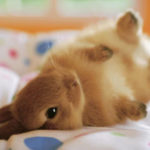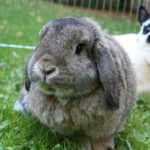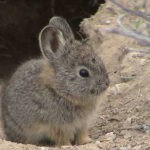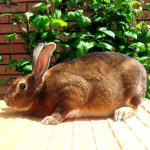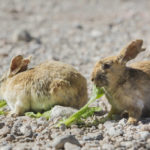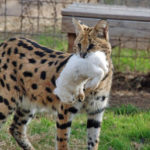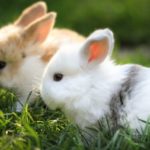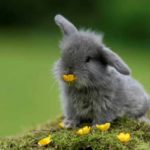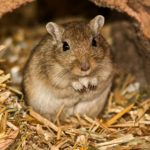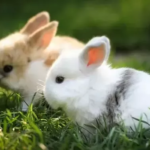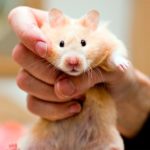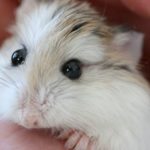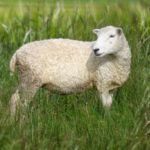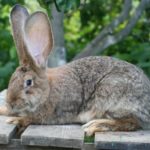Bunnies
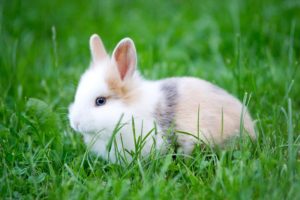 Bunnies are herd animals and live in large groups in natural conditions. The domestic Bunny also needs a society, and this largely explains his attachment to man and the desire to communicate with other animals.
Bunnies are herd animals and live in large groups in natural conditions. The domestic Bunny also needs a society, and this largely explains his attachment to man and the desire to communicate with other animals.
Particularly acute is the problem of loneliness for pets kept in a cage or outside the home. Sometimes the situation can be brightened up to some extent by soft toys – a bunny will consider them as their relatives and will not feel so alone.3
A happy rabbit can make absolutely unexpected sounds. If spoiling, squeezing and stroking your pet, you suddenly heard a purr like a cat, which means that he is quite happy with life and blissful.
In nature, bunnies consume fresh or dried grass, eat up branches, pick up fallen fruits. To compensate for energy costs, they need to eat a lot of this inadequate food.
Therefore, pets have an irrepressible appetite and readily consume everything they offer, which often causes them to overweight. The diet of domestic rabbits should consist of 2/3 of hay, and the lack of nutrients is compensated with concentrated food – special granules.
Bunnies do not like terribly when they are torn from the ground and taken in their arms. In the wild, these animals are the prey of predators, and always associate a rise in the air with an attack, try to escape and can start kicking.
It will be better if you lean towards your pet – it’s a small payment for love and devotion. And yet, never lift a rabbit by the ears!
Early morning and evening are the most active periods of vital activity of an energetic animal. It is at this time that he spends most of the energy on communication, running, jumping, fussing with toys and showing himself in any other possible ways.
Afternoon tired of morning troubles pet prefers to sleep. Therefore, you need to give him a quiet corner and install a convenient booth. Bunny also has the right to personal space!
